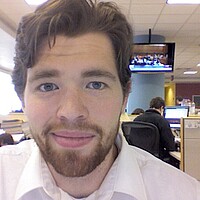Jane Goodall: seeds of plagiarism
When Washington Post editors assigned an expert in botany to read renowned primatologist Jane Goodall's new book, "Seeds of Hope: Wisdom and Wonder from the World of Plants" which comes out next month, they were hoping for a book review. But what they got instead was some distressing news: Goodall's book contained passages taken without attribution or footnotes from a variety of Web sites.
A Washington Post article details the places in the book where the borrowing appears.
In a statement, Goodall said, "I am distressed to discover that some of the excellent and valuable sources were not properly cited, and I want to express my sincere apologies. I hope it is obvious that my only objective was to learn as much as I could so that I could provide straightforward factual information distilled from a wide range of reliable sources."
Goodall wrote "The Seeds of Hope" – which the Post calls "a passionate narrative about plants" – with Gail Hudson, who has contributed to two other books by Goodall.
Goodall's (and her publisher's) lapse is another case of high-profile plagiarism charges that have tainted such authors as Doris Kearns Goodwin, Fareed Zakaria and Stephen Ambrose, as well as a string of German politicians.
It's easy to blame plagiarism on the Internet, sloppy research assistants, or the "copy/paste" function on keyboards, and many authors have done so. Many in the book world also blame publishers for not doing more rigorous checking of manuscripts prior to publication.
In Goodall's case, there is no suggestion that her intent was to pass off the ideas of others as her own. The borrowing that is found in her book is an instance of what the Post calls "content copying" – a serious lapse nonetheless, although, as the Post notes, when looking into a plagiarism charge, "questions of intent, haste, carelessness, number and length of echoed passages all come into play."
According to the Post, Goodall has said that she will discuss the issue on her Jane Goodall Institute Web site blog and will correct future editions.






